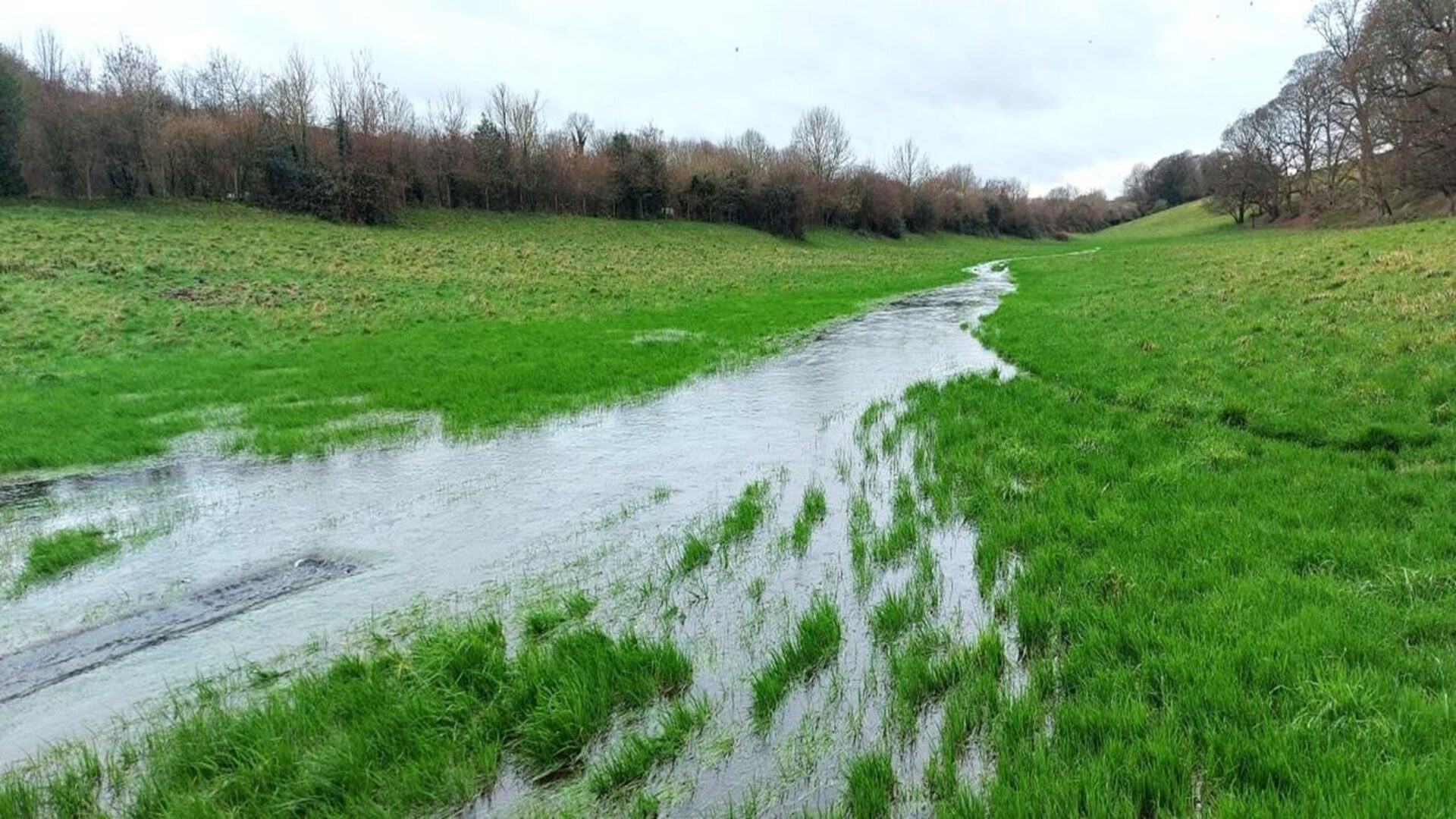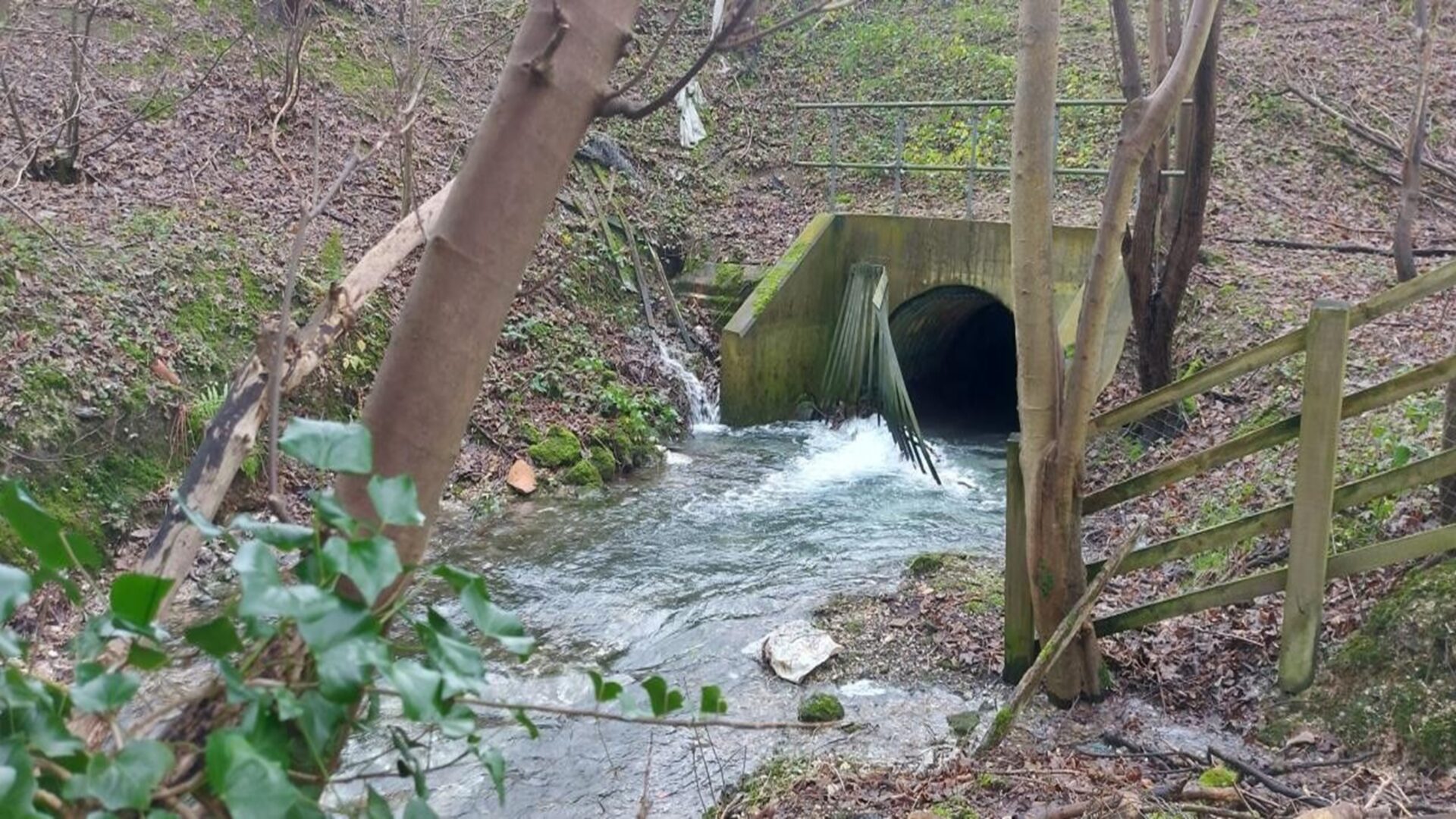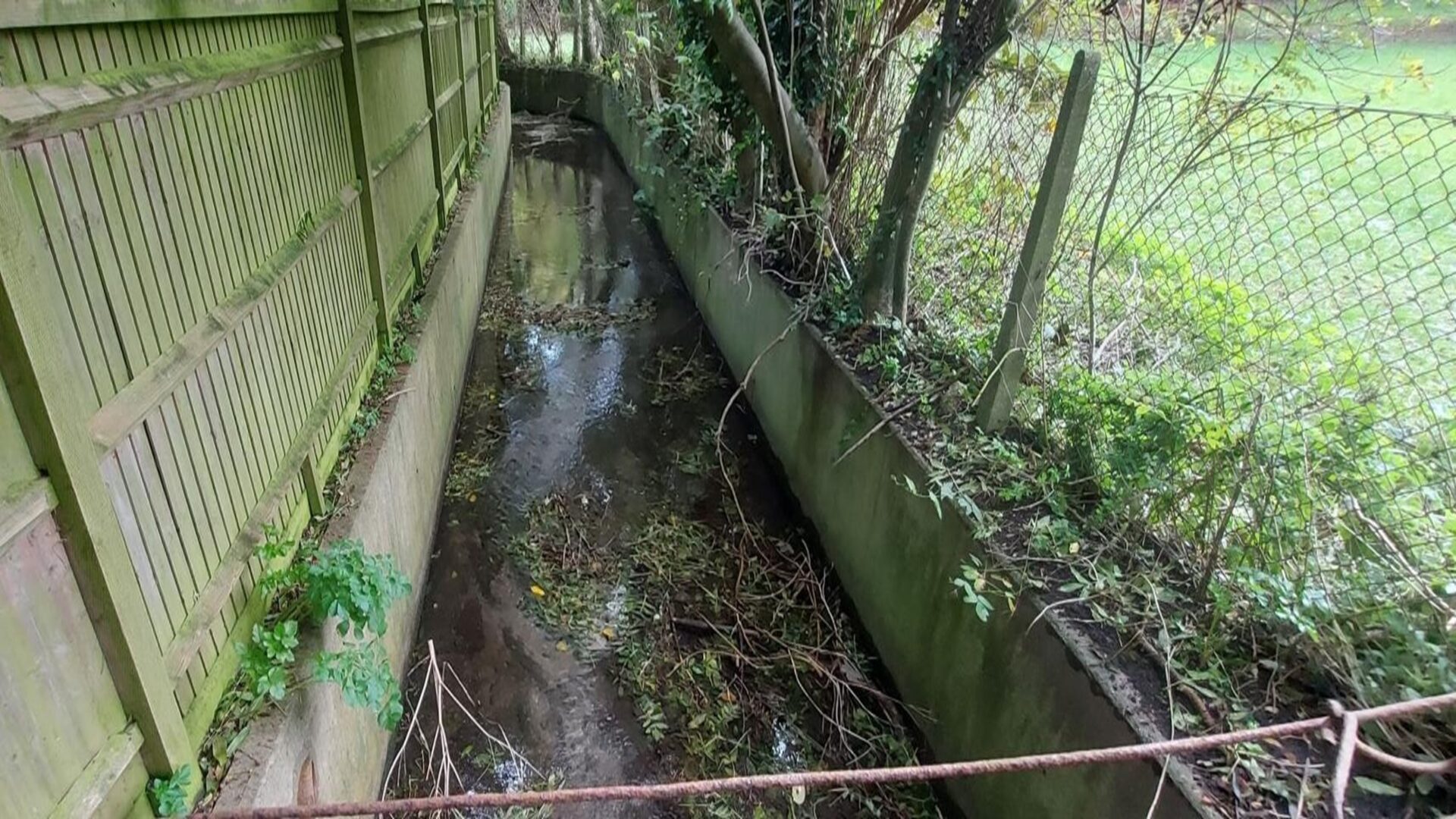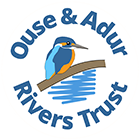Despite its designation as a chalk stream priority habitat, the Lewes Winterbourne watercourse has suffered progressive deterioration with extensive modifications of its channel. It is heavily uniform, and its course has historically been straightened, culverted, embanked and in sections over-deepened or otherwise disconnected from its floodplain and riparian margins. These historical modifications have been undertaken to reduce groundwater-related flood risk to the town of Lewes as well as for housing, development, road building and agriculture.
Many of the issues facing the stream can be attributed to these modifications, alongside contemporary management practices that continue to degrade the natural processes that are typical in healthy chalk streams. The stream is impacted by road run-off, abstraction, siltation, over-shading, algal growth, the spread of invasive non-native species (INNS), agricultural runoff, and barriers to migratory fish which all exert a negative influence.
In 2023 the Ouse and Adur Rivers Trust undertook a detailed study of the Winterbourne resulting in a detailed assessment of its current condition and the opportunities for its restoration, also drawing on existing resources and local knowledge.
From this report we have created the Winterbourne Action Plan, some of the identified actions have begun and are considered to be quick wins for the local environment and community whilst some will take longer to achieve and the cooperation of multiple partners. We therefore believe that a ten year focus on the restoration of the Lewes Winterbourne will enable sustainable, supported and effective action to be implemented for the long-term future of this waterbody.




